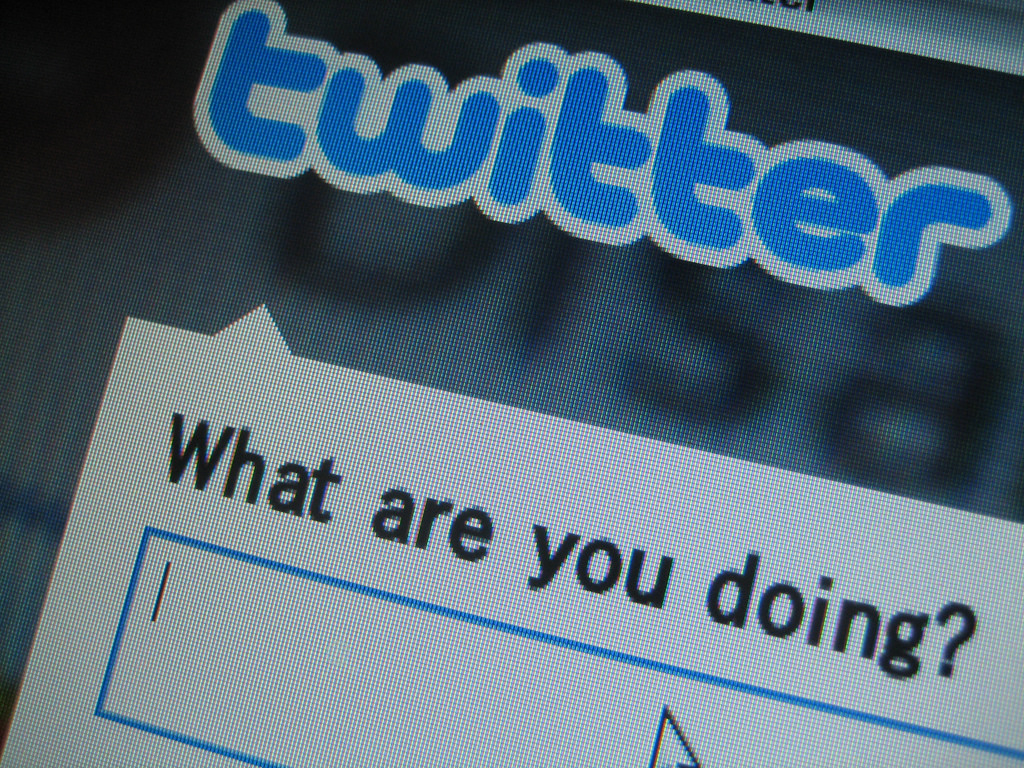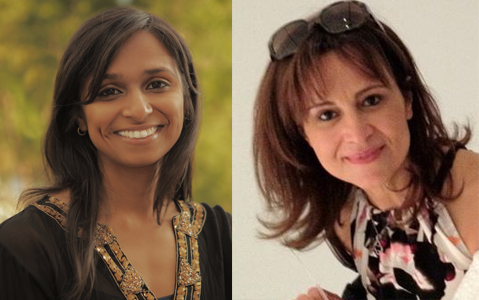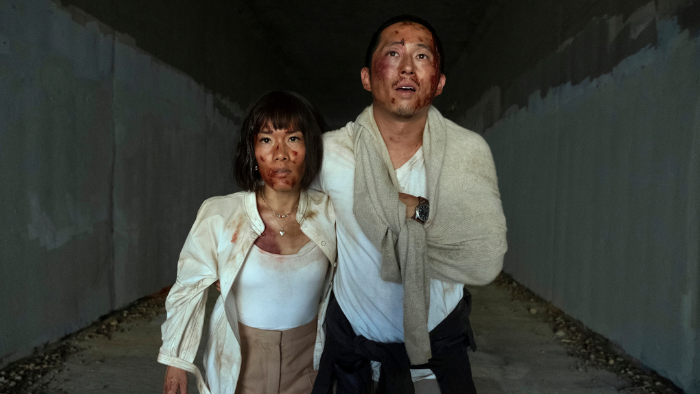Over the last week, a hashtag was trending on Twitter for a community that I am an active part of, and that hit a little close to home: #ThisIs2016. Asian Americans used #ThisIs2016 to speak up and share experiences with racism and prejudice. It was a group lament that the world has not changed, even though this is 2016 and racism is supposed to already be dead.
As quick background, New York Times editor Michael Luo wrote an open letter to a woman that told him to “go back to China.” Soon after, the New York Times also released a video highlighting some, largely East Asian American experiences that had started to being being shared all over social media. For over a week now, I’ve been checking the #ThisIs2016 hashtag and reading poignant stories from my fellow Asian Americans.
I saw hundreds upon hundreds of tweets from other Asian Americans from all over North and South America describing familiar scenarios, feelings, and reactions. It was all quite overwhelming to say the least. But I’m not going to say the least anymore… If you’ll bear with me through this entire post, I hope you’ll see why.
Asian Americans share their experience on Twitter with #ThisIs2016
Reading hundreds upon hundreds of tweets, I was brought to the verge of tears more than once. Over all, I’ve spent hours reading, feeling, and re-experiencing my life through the stories of others. These were life experiences that I never knew other people in this world had had, too.
Admittedly, some tweets made me laugh out loud a little,
#thisis2016 "Speak freaking English!" So I did. In Southern accent.
— DigitalDeath (@itchibahn) October 11, 2016
Most of the others, though, struck chords. Deep, dark chords from low times of my life or discordant, sharp, high notes like the sound that silverware makes when you throw it down the stairs… Because apparently that’s how I was named.
"what's the sound a fork makes when you drop it down the stairs? Ching Chong Ching Chong " 😑 #thisis2016
— kev – tiktok data collector in training (@justkevooo) October 15, 2016
They reminded me of many personal brushes with overt racism that I had experienced in my time living in Virginia. Having worked in Chinese takeout restaurants for several year, these struck a particular nerve. I’ve had customers make jokes about ordering dog meat off the “secret menu” and I didn’t say a thing… I just let it slide because I didn’t want to scare away the tip. Growing up, I had a pet dog and cat that I loved very much. Talking about them at school would sometimes prompt some racist remarks though… Because apparently pets are what I eat at home.
https://twitter.com/haveagooddavey/status/785917631853367296
Been told Asian racism doesn't exist. Then ask if the homemade lunch from #FreshOffTheBoat has dog in it. #thisis2016 https://t.co/4zPuDDLvlS
— aiMEEEE (@chivolute) October 11, 2016
Sometimes the racism was so covert I wouldn’t be able to identify it. I know now that it t’was foolish, but back then I was really always hoping that these strangers were asking me about my rich and varied American experience. I’ve lived in more American states than some Americans visit in their lifetimes, but that’s not what those sweet ol’ ladies were asking about, was it… Because apparently a country is the answer to “what are you?”
https://twitter.com/deniselaw_/status/787346065158705152
"Where are you from?"
Chicago.
"No really, where were you born?"
M'F'er, my mother gave birth to me IN CHICAGO.#PerpetualOther #thisis2016 https://t.co/FXBqiKNTNu— e.ahn (@ahnfire) October 10, 2016
https://twitter.com/coeurcurieux/status/786789523195768832
Hotdog vendor: "what are you?"
Me: "Human, what are YOU?!" #thisis2016 @michaelluo— Grace Lanuza (@itsmegracel) October 12, 2016
I know that I’ve personally been taken aback by the hypersexualization of Asian women that I’ve seen in media and in real life. The trials and tribulations of being an Asian American female are not for me to expound on. Whenever I think about the future and having children, I worry that I wouldn’t be able to handle having a daughter… Because apparently Asian females aren’t humans, but rather dolls for your trophy case of sexual conquest.
People tell me my daughter looks like a China doll. She's not Chinese, and she's a person, not a toy. #thisis2016
— Sunni Wheeler (@punkblogger) October 11, 2016
The China doll comments, the Asian fetishism, the randomly blurted out "Ching Chang Chong" while I'm walking down the street…#thisis2016
— *jess* (@jessleeyoung) October 17, 2016
As an Asian American man, I also worry that I would struggle in teaching a future son about authentic manhood when society might be leading him astray… Because apparently Asian males are also subhuman, stereotypically passive pushovers, and not even worth a swipe right.
@michaelluo dating as an asian male, seeing profiles listing preference as "all-american," getting replies like "no chinks" #thisis2016
— Carl Cheng 😷 (@carl_cheng) October 10, 2016
A lot of passive racism: as an Asian male, there is the expectation that I be quiet, reserved, & not aggressive. #thisis2016
— Jack Ji (@glorytaker) October 10, 2016
https://twitter.com/kylepkuo/status/785604266970927104
As we all know, even children aren’t immune to racist experiences. Thinking back, I was able to remember brushes with racism and prejudice from when I was just 8 years old… Because apparently kids pick up on their parents habits.
https://twitter.com/ray6872/status/786342510595600385
https://twitter.com/unakavanagh/status/787076230315118592
Think of the children
I remember when I was in elementary school and someone called me a “Chinese asshole.” This particular experience has stuck with me, mostly because it’s one that my parents remember and retell themselves. Growing up, I was always told that I was Taiwanese (not Chinese) and repeated attempts to explain that to peers were almost always met with one inherently ignorant and infuriating response:
“Same difference.”
Just typing it out makes my lips curl. The difference between different types of Asians is not simply “same-same, but different, but still same” as James Franco so artfully articulated in his rendition of a one-dimensional, walking-talking stereotype of his ethnicity when he played Dave Skylark in The Interview.
In the slew of #ThisIs2016 tweets that have bombarded my feed, my heart, and my soul, it became clear that the differences weren’t all reconciled yet, and some of the #ThisIs2016 messages still had the tinge of anger and pain that only comes with marginalization. Many South and Southeast Asians noted that much of the covergae from the New York Times focused disproportionately much on East Asian American experiences. One professor of South Asian descent wrote an open letter back titled: An Open Letter To The ‘New York Times’ Who Told Brown Asians They Don’t Matter. Maybe a last minute casting call which asked for Asian American voices had a majority East Asian respondent group because of self-selection due to the mis-education and mis-identification that we’re fighting against right now? It’s not an excuse: Either way, ignoring the South Asian voice is another huge mistake that has been made and should not continue to be made in growing the Asian American voice.
According to AAPIdata, the majority of Asian Americans are not East Asian. Of the Asian American population, 26% trace their origins back to South Asia (Indians, Pakistanis, Bangladeshis, Sri Lankans, Bhutanese, and Nepalese) and 34% trace their roots back to Southeast Asia (Laotian, Malaysian, Indonesia, Vietnamese, Cambodian, Filipino, Hmong, Thai, and Burmese). Lumping all Asian Americans together under the model minority myth has tangibly damaged some South Asian communities. Did you know that the Hmong American population has a lower high school graduation rate than any other ethnic group in the country? Even within the Asian American experience, there is a diaspora, a spectrum of color. The Asian American experience spans further than just the United States. Besides the over 18 million Asian Americans within the United States, there are almost 5 million Asian Canadians, nearly 2 million Asian Brazilians, around 350,000 Asian Mexicans, and at least 180,000 Asian Argentines. Not to mention there are millions of Asians living in other English speaking countries like Australia and the UK that have similar experiences. Let’s all band together, as the Internet now allows, and make a difference.
I’ve lived in the US for over 25 years now, from sea to shining sea. I’ve lived in sunny Southern California, where Asian faces are a common sight. I’ve also been in corners of America, where the only Asian face I’d see for days at a time would be in the mirror. I’ve seen race relations between other ethnicities that made me acutely aware that Asian stereotypes are arguably tame. You shouldn’t have to argue about which type of racism is worse, though… Maybe, just maybe, collectively identifying these identity issues and acknowledging the differences between discrimination against Asian Americans, Latino Americans, Middle Eastern Americans, and African Americans actually helps us band together and make America the melting pot it is supposed to be.
#ThisIs2016…To say the least
While remembering my own brushes with racism, I felt that my experiences were missing something – closure, feels, an ending, whatever you want to call it. Confrontation is what was missing. In the past, I was passive. by not speaking up against small instances of racism, I signaled to others that it was OK to keep going down the slippery slope. Even though I tried to resist, i ended up falling into the self-fulfilling prophecy of the model minority Asian stereotype: He who is passive, effeminate, and marginalized. I’d like to think that I have broken free of that mold in the years since.
The next time an African-American child lifts his hands to his eyes and yells “ching-chong-ling-long” all sing-song at me, I will raise my voice at his or her parents and politely ask if it’d be OK for me to make gorilla noises at their child. If I’m at Panda Express and someone asks the worker if they serve dog meat, I’m going to say something. If somebody calls my girlfriend a china doll, even as a “compliment,” you betcha I’m going to say something.
From this day forward, I am making it a point to confront overt AND covert racism whenever I encounter it… If enough of us do so, things can AND will change. This is the year that things will finally change. #ThisIs2016





